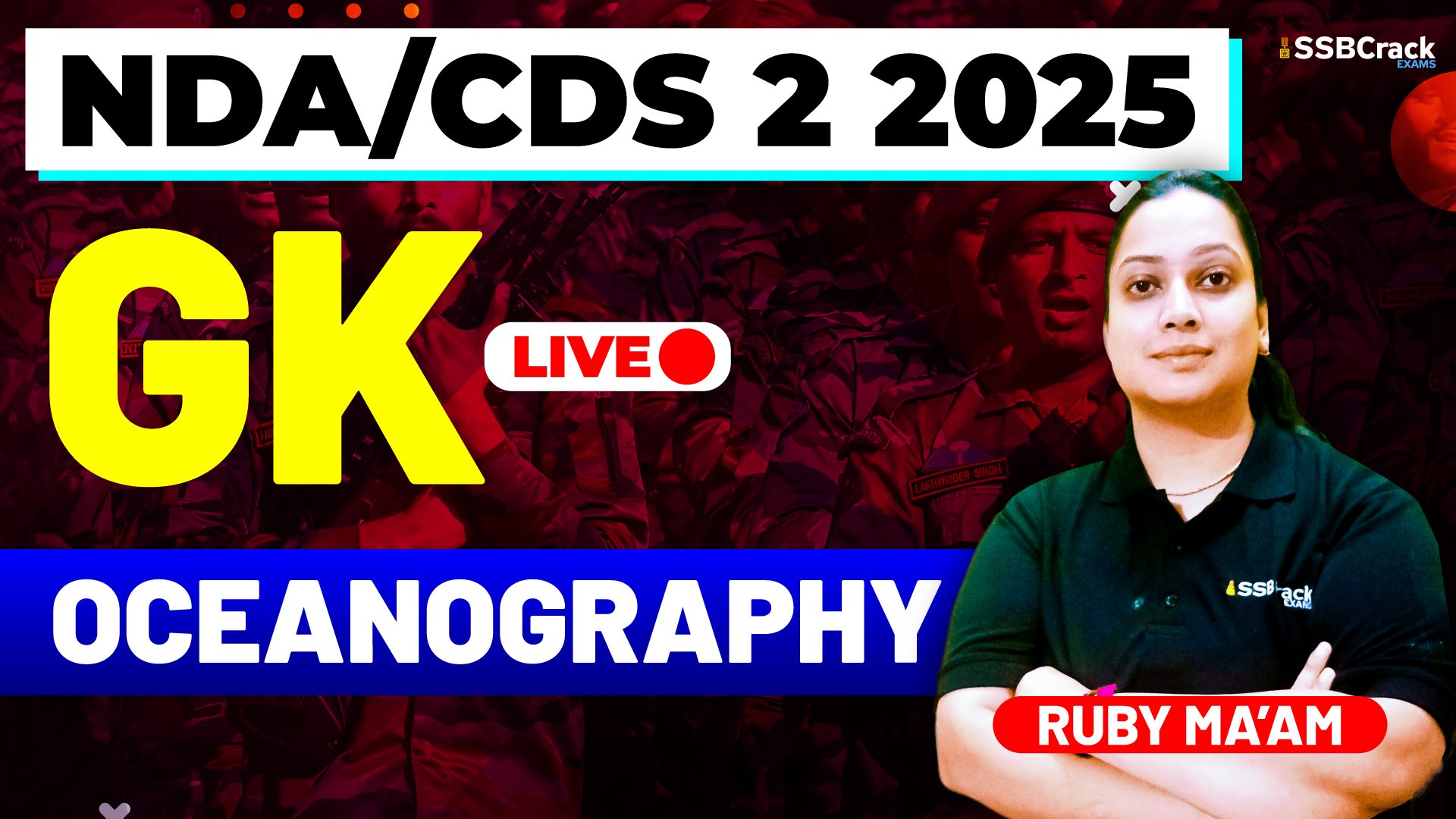For aspirants of competitive defence exams like NDA (National Defence Academy) and CDS (Combined Defence Services), mastering Geography is a key part of scoring well in the written examination. Among the several sub-disciplines of Geography, Oceanography plays a crucial role due to its direct relevance in both academics and national defence. Understanding oceanography not only helps in cracking the exam but also in building a solid foundation for future roles in the Navy, Air Force, and Army, especially in maritime and coastal operations.
🔍 What is Oceanography?
Oceanography is the scientific study of oceans, seas, and marine environments. It covers a wide range of topics including ocean currents, tides, waves, salinity, marine resources, ocean floor topography, and the role of oceans in climate systems. This branch of physical geography is essential for understanding Earth’s hydrosphere.
📚 Why Oceanography is Important for NDA/CDS Exams?
- Part of the Syllabus:
Oceanography is a regular component of the Geography section in the NDA and CDS exams. Questions frequently appear on topics like ocean currents (e.g., Gulf Stream, Kuroshio), tides, coral reefs, EEZ (Exclusive Economic Zones), and marine trade routes. - Strategic and Defence Relevance:
For future officers in the Navy and even in the Army and Air Force, understanding the oceans is vital. Ocean currents, shipping lanes, and maritime boundaries affect naval operations and national security. This is especially important given India’s extensive coastline and growing naval presence in the Indian Ocean Region. - Climate and Environmental Impact:
Oceans play a central role in regulating the Earth’s climate. Concepts like El Niño and La Niña, sea level rise, and ocean warming are essential for understanding environmental and climatic changes — a topic often linked with international relations and disaster management in defence planning. - Map-based Questions:
NDA and CDS papers often include map work. Knowledge of oceans, straits, gulfs, seas, and marine currents helps solve these questions quickly and accurately. - Boosts Analytical Skills:
Oceanographic knowledge builds spatial awareness and logical thinking. Understanding how and why ocean currents influence weather or global trade fosters a better grasp of world geography and its interlinkages.







